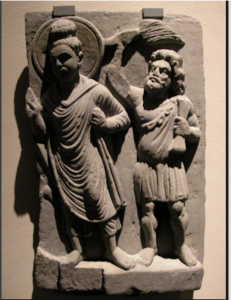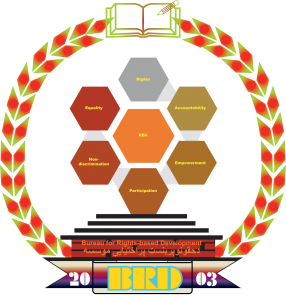Context
Before, cultural heritage was merely looked at as a source of income. Today, its role as an active agent of social transformation has been increasingly recognized, and culture and heritage are considered as basic needs.
The history and archaeology of Afghanistan stretches back more than 40 millennia. The people, monuments, archaeological sites and literature all bear witness to the multiple layers of an extraordinarily rich cultural heritage in Afghanistan.

The benefits of a cultural focus to the peace and nation-building process in Afghanistan are also clear. It is obvious that if a culture of peace is to be encouraged in Afghanistan, it must be grounded in the concepts of cultural diversity as well a shared national identity that recognizes and celebrates diversity within its complexity.
A cultural approach to development also addresses recovery from conflict by enhancing peace and social cohesion through building a shared sense of national identity, helping affected groups and communities to reassert their cultural identities, to encourage a return to normalcy and by bringing former adversaries together.
In this regard, there is a clear and major role for culture to play in building a sustainable peace in Afghanistan. Moreover, the benefits to the national pride from this type of global visibility are overtly positive and can be further developed and encouraged through concrete support for the sector from the international community.
However, the great potential for cultural development in Afghanistan is currently being undermined and has had to endure unimaginable loss in the past, but yet it has remained subject to deliberate destruction, pillage and neglect throughout the decades of war, civil unrest and insurgency into the present. Despite best efforts, several monuments identified by UNESCO and the Afghan authorities as being of worldwide significance have either been destroyed or continue to be at risk of collapse because of a combined lack of both resources and expertise to ensure the provision of the necessary emergency conservation and safeguarding measures.
According to BRD rapid assessment of the tangible culture heritage sites at high risk in diester prone provinces, supported by the Prince Clause Fund (PCF), most of the culture heritage site remined in the status of collops, and required quick response for protection and stabilization, but there was no measure in place by the responsible institutions or other organizations, due to lack of resources, capacity, insecurity and accessibility because of the on-going conflict, including the lack of skills, knowledge and expertise for provision of firsts aid to preserve and protect culture heritage in time of crises and emergencies.
In fragile states such as Afghanistan with on-going conflict, where most of the tangible and tangible and intangible cultural heritage are remained in acritical high risk, in such a context the communities, civil society have an important role to play to preserve and safeguards culture heritage in their respective villages and districts. If they are sensitized and educated on the value and importance of the cultural heritage and provided with basic skills on protect culture heritage in high risk.

To address the problem and respond to the needs to safeguard and preserve culture heritage in Afghanistan, BRD already adopted a community- approach to preserve and protect culture. Sensitizing and educating local communities on the importance of culture heritage as national identity, their role and responsibilities as key stakeholder, for taking proactive role in safeguarding all aspects of the rich Afghan culture heritage, which serve as a source of history and identity for future generations and as a platform upon which to build a culture of peace and sustainable development.
Goal: The project goal is to strengthen capacities to preserve protect and develop culture heritage in Afghanistan
Project Objectives:
- Educate, sensitize and strengthen the linkages among local community based and civil society organizations on the value, importance and their responsibilities toward protection and safeguarding of culture heritage;
- Equip the member of community-based organizations, civil society and government institutions with knowledge, skills and tools required for timely delivery of first aid to preserve and safeguard culture heritage in time of crises and emergencies;
- Intensify cultural heritage protection and preservation activities through the trained participants at the local level in Afghanistan;
- Establish network of the trained trainee using online portal, serve as an important platform for continues learning, experience sharing and networking among the participant, culture heritage professional and civil society.

